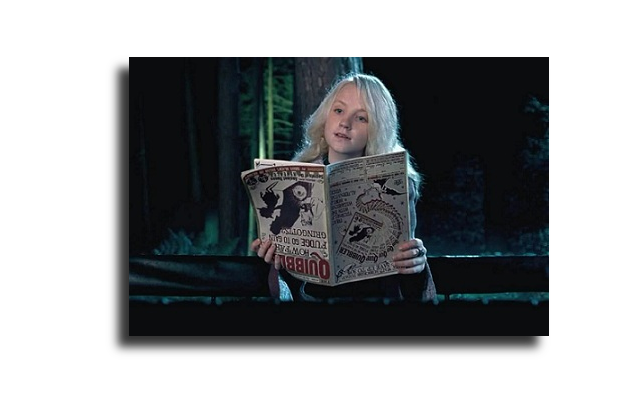Post by misscharlotte on Aug 4, 2015 18:08:23 GMT -6
New from J.K. Rowling
Just as British witches and wizards do not use electricity or computers, they have never turned metric. They are not governed by the decisions of the Muggle government, so when the process of metrication (switching to metric measurements) began in 1965, witches and wizards simply ignored the change. Some of them (e.g., Arthur Weasley) would have been interested and intrigued; most would have been indifferent, and some (e.g., Lucius Malfoy) would have spat in the face of anyone who asked him for the length of his wand in centimeters, because they would have been revealing themselves as a blood traitor.
Witches and wizards are not averse to laborious calculations, which they can, after all, do magically, so they do not find it inconvenient to weigh in ounces, pounds and stones; measure in inches, feet and miles; or pay for goods in Knuts, Sickles, and Galleons.
Just as British witches and wizards do not use electricity or computers, they have never turned metric. They are not governed by the decisions of the Muggle government, so when the process of metrication (switching to metric measurements) began in 1965, witches and wizards simply ignored the change. Some of them (e.g., Arthur Weasley) would have been interested and intrigued; most would have been indifferent, and some (e.g., Lucius Malfoy) would have spat in the face of anyone who asked him for the length of his wand in centimeters, because they would have been revealing themselves as a blood traitor.
Witches and wizards are not averse to laborious calculations, which they can, after all, do magically, so they do not find it inconvenient to weigh in ounces, pounds and stones; measure in inches, feet and miles; or pay for goods in Knuts, Sickles, and Galleons.
J.K. Rowling's thoughts
When the manuscript of Harry Potter and the Philosopher's Stone was first accepted for publication in Britain, the copy editor advised me that all weights and measures
The decision to keep the imperial system in the book had an unexpected sequel, which was an invitation to join the British Weights and Measures Association. As I do not agree that Britain ought to refuse to use the metric system (as many of this society's members do), I was about to throw this invitation in the bin when I was struck by a sudden thought, and changed my mind. I know that what I am about to say does not reveal very good things about my character, but I had realised in a flash how much it would enrage my sister, Di, if I signed up. Di is never funnier than when infuriated, and among her many pet hates is the old-bufferish adherence to the old ways just for the sake of them, or because-by-lord-it's-British-and-no-Johnny-Foreigner-is-Going-To-Tell-Me-How-To-Measure-Suet-ness that such an organisation represents.
When my membership came out in the press, she exploded in a really satisfying outpouring of rage. I could hardly stop laughing long enough to tell her that I'd only joined to annoy her. This rendered her almost incoherent with indignation, which was possibly even funnier. Frankly, I doubt whether anyone has ever had as much fun for the price of a postage stamp.
When the manuscript of Harry Potter and the Philosopher's Stone was first accepted for publication in Britain, the copy editor advised me that all weights and measures
The decision to keep the imperial system in the book had an unexpected sequel, which was an invitation to join the British Weights and Measures Association. As I do not agree that Britain ought to refuse to use the metric system (as many of this society's members do), I was about to throw this invitation in the bin when I was struck by a sudden thought, and changed my mind. I know that what I am about to say does not reveal very good things about my character, but I had realised in a flash how much it would enrage my sister, Di, if I signed up. Di is never funnier than when infuriated, and among her many pet hates is the old-bufferish adherence to the old ways just for the sake of them, or because-by-lord-it's-British-and-no-Johnny-Foreigner-is-Going-To-Tell-Me-How-To-Measure-Suet-ness that such an organisation represents.
When my membership came out in the press, she exploded in a really satisfying outpouring of rage. I could hardly stop laughing long enough to tell her that I'd only joined to annoy her. This rendered her almost incoherent with indignation, which was possibly even funnier. Frankly, I doubt whether anyone has ever had as much fun for the price of a postage stamp.





